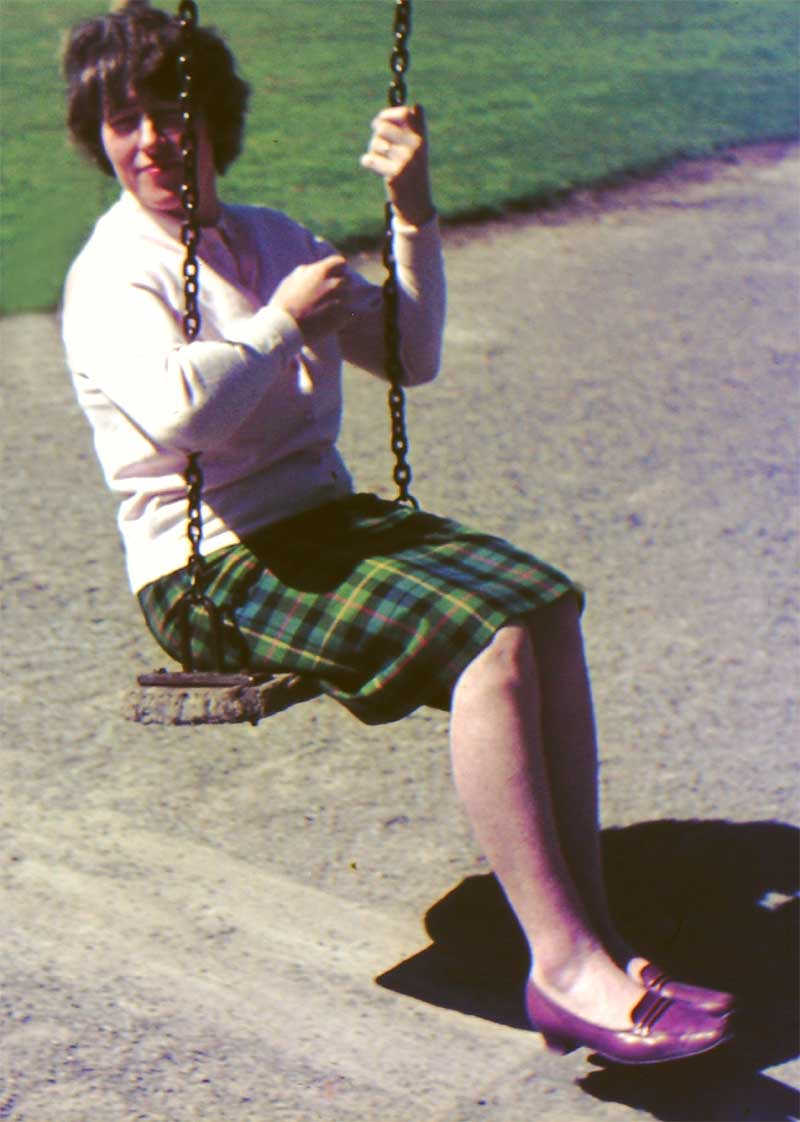
There is only one word that describes my motivation for creating Decoding Alzheimer’s and for being part of the global team working to find a cure for Alzheimer’s disease, and that’s ‘Mum’. She and Dad both taught me the value of never losing hope when faced with a challenge. Mum lived with the disease for many years and while I couldn’t ultimately save her, I have joined the fight against Alzheimer’s in her memory.

Research projects and careers are often born from wanting to be involved with finding a solution to something that has touched us on a deeply personal level. I can’t think of a greater motivation to want a find a cure for Alzheimer’s than caring for, supporting and ultimately losing your own mother to this devastating disease.
I am not an Alzheimer’s scientist from a traditional background in life sciences. In fact, I moved back to research after working in the corporate sector for many years, to learn and make a contribution in Alzheimer’s research. So, I think it is even more important to explain my ‘back story’.
My story
When Mum was diagnosed with Alzheimer’s in 2006, I was in the middle of my PhD. By the time I graduated four years later she wasn’t even well enough to come to my graduation ceremony. Mum had always been there to celebrate the important moments in our lives, which made her absence even more profound. We had to put Mum into a dementia-care facility only a few weeks later. It was heartbreaking, as it was something as kids Mum had made us promise we would never do; but we were left with no choice. Mum had completely lost the ability to walk, speak or help us to be able to look after her safely. It was the hardest thing I had done in my life up to the point.
As I supported Mum (and Dad) I saw the toll it took not only on my own family, but on the others I met along the way. I started to question why there was no way to cure or prevent Alzheimer’s, and to this day, still isn’t. As a scientist I started to research what I could possibly contribute using my background in physics and engineering. After all, finding answers to problems is what we are trained to do as scientists. My thought was, and still is, that complex problems need a multi-pronged approach to unravel their complexity and gain potentially unforeseen insights. The many heads are better than one, approach.

It was around this time that I met Professor John Crawford and was introduced to systems biology – a multi-disciplinary approach that uses tools and lessons learned from different scientific disciplines to help understand the complexity of living things. John is a world-leading expert in modelling complex life systems and gave me the answer to how I could help make a difference. We need to study Alzheimer’s as a complex system, not just cell by cell, or gene by gene, because it is a tissue-level and multifactorial disease. Amongst others, physics, engineering and mathematics provide us with tools to do just that (see The Integrative Approach).
John and I are currently collaborating on a project with Sir John Hardy, one of the world’s leading thinkers and scientists in Alzheimer’s, to help unravel the complex mechanisms of the disease. Our collaboration brings tools to the table to begin opening a window for the Alzheimer’s research community to observe what traditional experimental approaches cannot. To find a cure we must all learn to think outside the box and turn challenges into opportunities.

And my over-riding wish?
I met many others journeying on the same path, while supporting Mum as she lived with Alzheimer’s. Everyone felt the same sense of prevailing hopelessness. It was frustrating not to be able to find the answers we badly wanted from the doctors and healthcare professionals. Hope was something that was in very short supply.
I am now in a position of greater understanding and I hope with the potential to make even the slightest of differences. My ultimate wish is to help bring hope to those of you treading the same path I trod, and to be part of the solution to finding a cure for Alzheimer’s – no matter how small that part might be.

